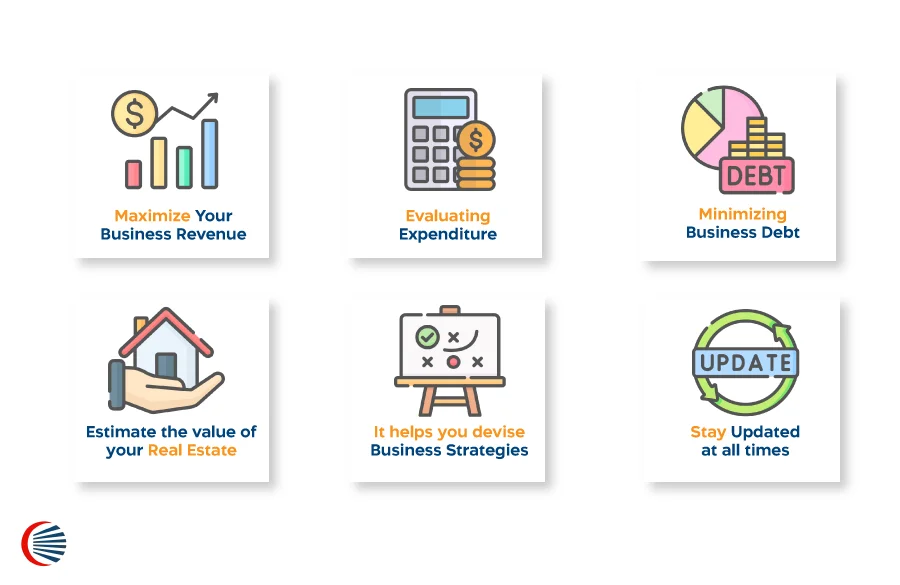The Smartest Way to Handle Real Estate Tax Services to Stay IRS-Compliant
Comprehending the Value of Building And Construction Bookkeeping in the Construction & Realty Market
In the construction and real estate industry, the significance of building and construction accounting can not be overemphasized; it serves as a cornerstone for attaining economic success and operational performance. By employing precise task cost tracking and critical capital management, firms can attend to the unique difficulties positioned by complex jobs. The capacity to preserve transparency and ensure regulatory compliance plays an essential duty in promoting reputation and affordable benefit. Yet, in spite of its relevance, many companies overlook necessary methods that might enhance their monetary efficiency. Checking out these nuances exposes vital insights that can improve exactly how sector gamers approach their financial monitoring methods.
Key Concepts of Construction Audit
Understanding the unique monetary landscape of the building sector calls for a solid understanding of key principles of construction audit. At its core, building and construction accounting varies considerably from typical accountancy techniques due to the intricacies fundamental in project-based procedures.
An additional important principle is using progression invoicing, which allows specialists to get settlements based upon the percent of work completed. This technique aids maintain capital throughout the project duration, crucial for operational security. Additionally, understanding profits recognition is essential; the percentage-of-completion approach is usually utilized to line up earnings with project milestones, showing the task's economic reality.
In addition, building audit emphasizes the importance of precise projecting and budgeting, as jobs usually extend over several months or years. Reliable task administration tools and software application can help in monitoring economic performance, guaranteeing that all stakeholders have presence into the job's financial health. Mastering these concepts furnishes building companies to browse their distinct economic difficulties and optimize their functional performance.
Obstacles Distinct to Construction Tasks
What obstacles do construction tasks deal with that set them in addition to various other sectors? One significant obstacle is the intrinsic intricacy of building projects, which often entail multiple stakeholders, consisting of professionals, vendors, subcontractors, and clients. Each event might have various priorities and timelines, leading to control troubles that can affect job delivery.
Additionally, construction jobs are prone to fluctuations in material expenses and labor schedule, which can disrupt timetables and budget plans. Weather additionally present a distinct obstacle, as unpredicted delays can cause raised prices and prolonged timelines. Additionally, regulative conformity and allowing processes differ by area, adding one more layer of complexity that need to be navigated carefully.
Another special obstacle is the project lifecycle, defined by stages such as style, closeout, building and construction, and purchase. Each stage needs meticulous preparation and monetary monitoring to make certain resource allocation straightens with job goals. The potential for adjustment orders and range modifications even more makes complex financial administration, necessitating durable accounting methods to maintain earnings.
Last but not least, the market often grapples with cash money flow problems, as settlements are typically contingent upon job milestones. This can strain monetary sources, making effective building bookkeeping critical to overcoming these challenges.

Benefits of Accurate Financial Monitoring
Accurate monetary tracking works as a keystone for effective building project monitoring, specifically due to the special difficulties faced by the market. By maintaining precise economic documents, building business can enhance decision-making processes, enabling managers to allot sources effectively and respond promptly to financial restraints.
One of the key advantages of accurate monetary monitoring is enhanced money circulation administration. Understanding when cash schedules from clients and when payments to vendors are required assists avoid cash shortages, guaranteeing projects remain on timetable. It allows firms to recognize discrepancies early, reducing the threat of budget overruns.
Additionally, accurate economic data assists in efficient project forecasting. By evaluating previous monetary click over here now efficiency, business can check my source make enlightened estimates for future tasks, minimizing the probability of unpredicted prices. This foresight likewise helps in establishing competitive quotes, as companies can provide even more exact rates to customers.
Last but not least, exact economic tracking improves conformity with governing requirements and contractual commitments. By methodically recording incomes and expenditures, building companies can easily create required reports for audits, securing themselves versus potential lawful disputes. In recap, precise economic monitoring is important for cultivating economic security and advertising lasting success in the building and construction market.

Vital Tools and Software
Just how can building and construction business efficiently manage their financial data in a progressively complicated landscape? The solution depends on leveraging vital tools and software application tailored to the special needs of the construction and real estate market. Building and construction audit software application gives robust remedies for monitoring expenses, taking care of spending plans, and generating economic records. By making use of specialized platforms, business can streamline their bookkeeping processes and make certain compliance with industry policies.
Popular building bookkeeping devices, such as Sage 300 Building and Property, Point Of View Panorama, and copyright Contractor, offer functions that facilitate project-based accounting. These systems make it possible for real-time tracking of work expenses, payroll processing, and invoicing, enabling for better financial exposure and control. In addition, cloud-based remedies supply the advantage of remote access, making sure that stakeholders can team up properly despite their place.
Incorporating job administration software application with bookkeeping tools further improves operational performance. This assimilation enables seamless information sharing, minimizing the possibility of errors and boosting decision-making. Inevitably, selecting the right mix of necessary devices and software program is crucial for construction business intending to enhance their financial monitoring and sustain development in an open market.
Finest Practices for Building And Construction Accountancy
Effective monetary monitoring in construction accountancy depends upon the Learn More execution of best practices that foster accuracy and transparency. One core principle is the application of customized building accounting software, which enhances processes such as invoicing, pay-roll, and job setting you back. This modern technology not only decreases errors however likewise improves reporting abilities.
One more important technique is preserving thorough paperwork. Maintaining in-depth records of agreements, modification orders, and invoices makes certain that all deals are deducible and verifiable. This level of paperwork is particularly vital throughout audits or when disagreements emerge.
Normal monetary evaluations and reconciliations also contribute significantly to reliable building and construction accountancy. By frequently contrasting actual costs to allocated quantities, companies can recognize variations quickly and readjust their techniques accordingly. Developing a clear graph of accounts tailored to the details requirements of the construction sector additional help in arranging monetary data, permitting even more informative analysis.
Conclusion
Finally, building and construction audit acts as an important part in the building and construction and genuine estate industry, helping with reliable economic management and project success. By sticking to crucial principles and employing important tools, firms can navigate the unique obstacles of construction jobs while reaping the benefits of precise monetary tracking. Applying finest methods not just improves earnings and capital monitoring but additionally guarantees conformity with regulatory criteria, ultimately fostering lasting growth within an affordable landscape.

In the building and genuine estate industry, the value of building and construction audit can not be overstated; it offers as a cornerstone for attaining economic success and operational efficiency.Recognizing the one-of-a-kind monetary landscape of the building industry calls for a solid grasp of crucial principles of construction accounting. In recap, precise financial monitoring is important for cultivating financial stability and advertising long-lasting success in the building and construction market.
